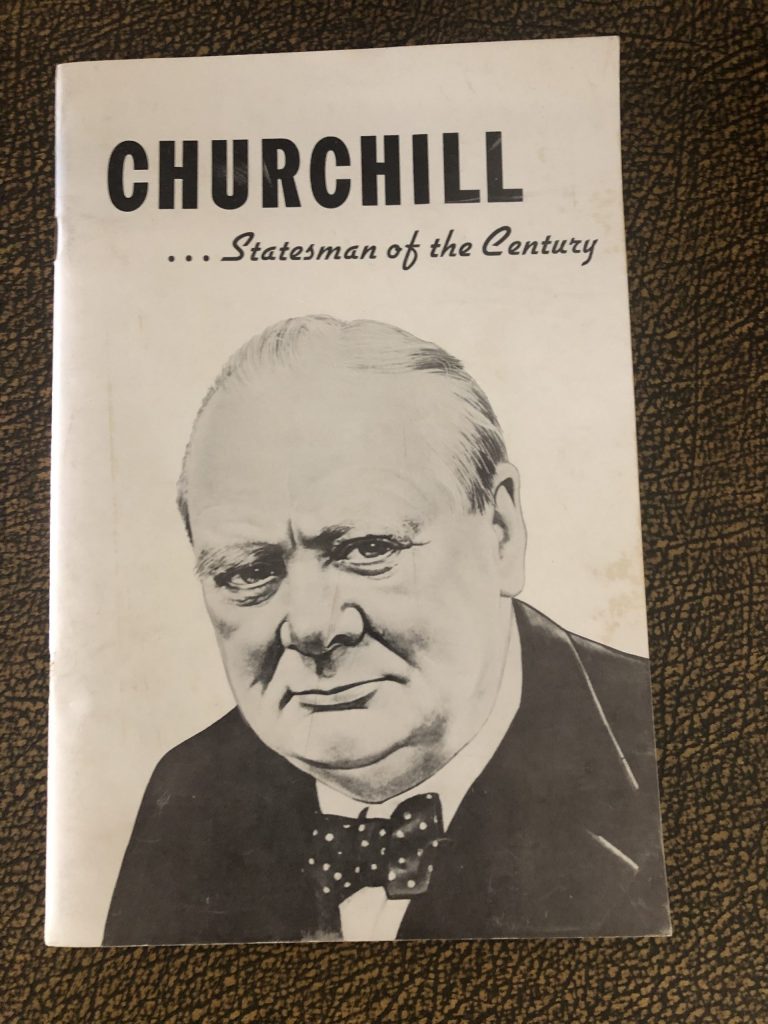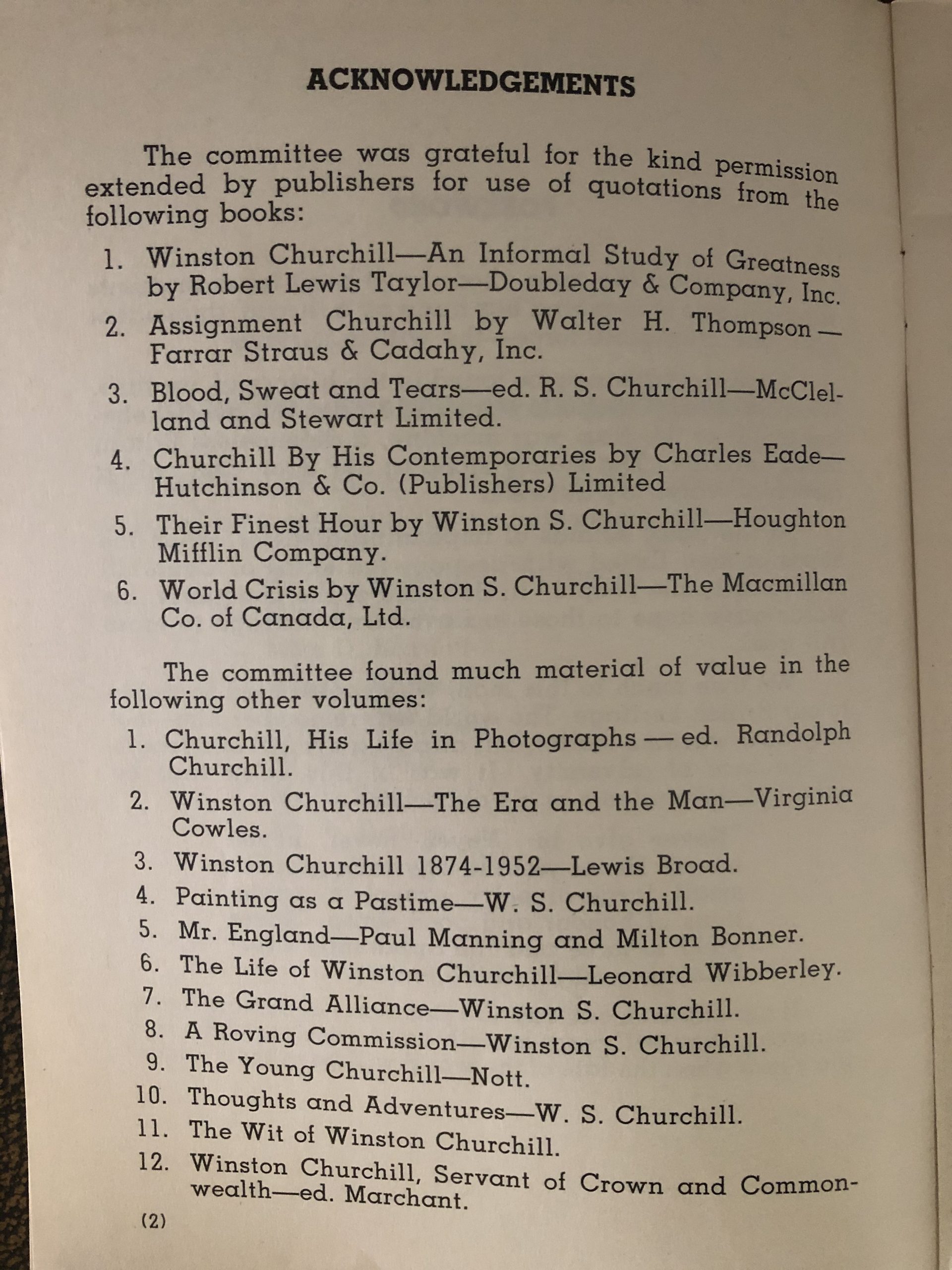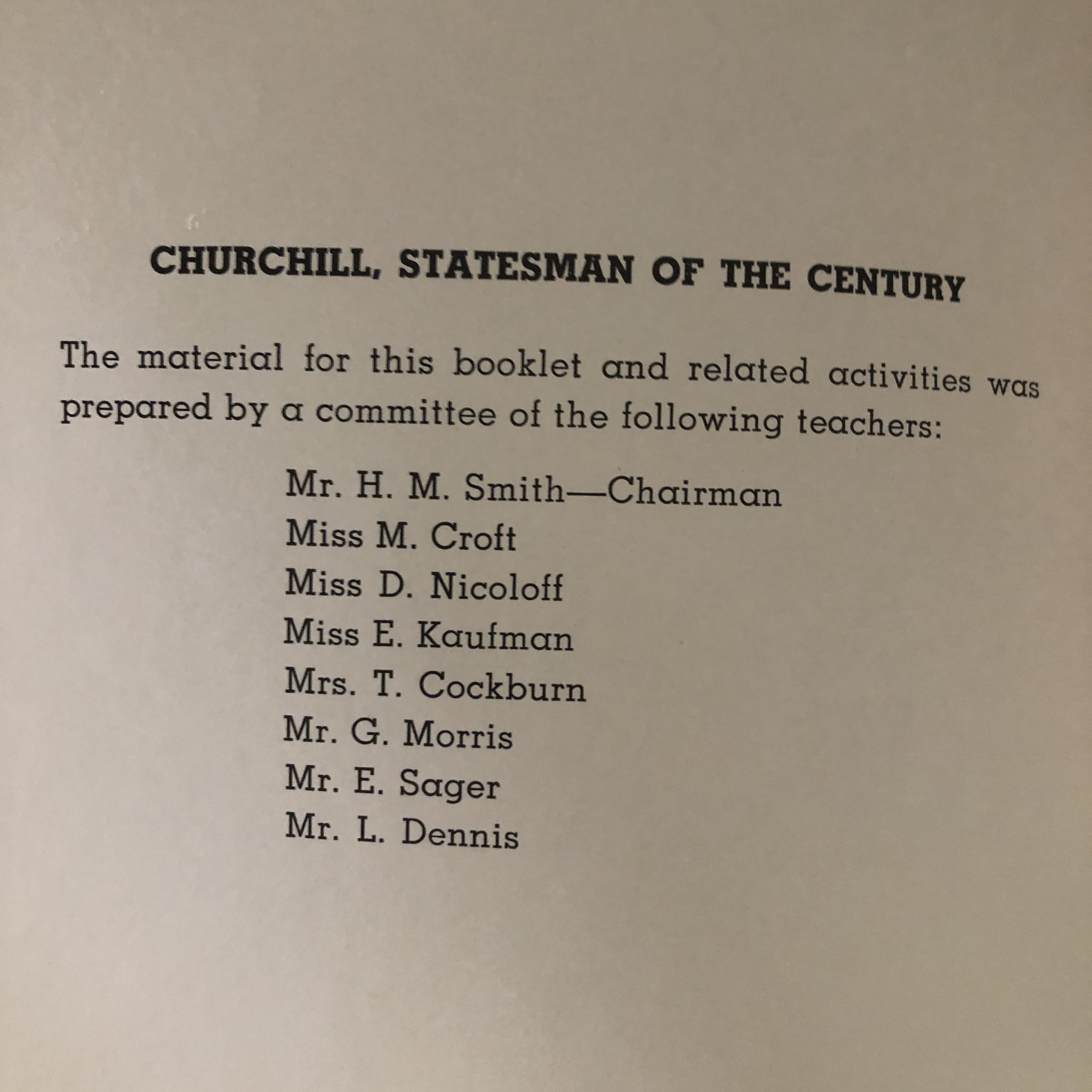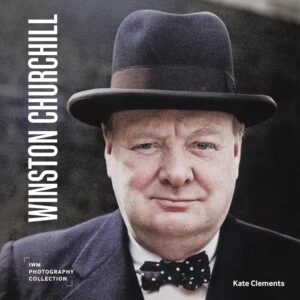Finest Hour 187
A Mysterious Pamphlet

Pages from Churchill...Statesman of the Century
June 7, 2020
Finest Hour 187, First Quarter 2020
Page 40
By Ronald I. Cohen
Ronald I. Cohen MBE is author of A Bibliography of the Writings of Sir Winston Churchill, 3 vols. (2006).
In this column I generally respond to questions brought to me by other Churchillians. Frequently these are about books or pamphlets people have encountered, which leave them puzzled or uncertain in some respect. I do not recall dealing before with a conundrum that has beset myself personally, but that is what happened when I recently came across a pamphlet in my own library to which I had not previously paid any attention.
The title is Churchill…Statesman of the Century. Although a nicely produced pamphlet of thirty-two pages with glossy card wraps, there is no author indicated, nor a publisher, city or date of publication. How unusual it all was. There are, of course, lesser pamphlet productions in the Churchill canon, but this one was not produced on the cheap. It is not listed in the late Curt Zoller’s Annotated Bibliography of Works about Sir Winston S. Churchill, nor can it be found in the catalogues of the British Library, Library and Archives Canada, or the Library of Congress.
As to content, the pamphlet is essentially a biographical summary, somewhat elementary in its presentation, which is divided into five parts: Part I—The Beginning; Part II—The First World War; Part III—Winston Churchill Between Wars; Part IV—The Second World War; and Part V—Into the Sunset.

 Everything in the booklet is in effect a synthesis of information gathered and condensed from more than a dozen works with a few interesting tidbits, one of which is the following story of an occurrence following shortly after the 1945 General Election at which Churchill and his government were defeated:
Everything in the booklet is in effect a synthesis of information gathered and condensed from more than a dozen works with a few interesting tidbits, one of which is the following story of an occurrence following shortly after the 1945 General Election at which Churchill and his government were defeated:
People in non-democratic countries find this tradition [of the simple democratic handover of the reins of government] hard to understand. A female visitor from a country in the Balkans, sympathizing with Mr. Churchill, exclaimed in horror, “Now, I suppose you will be shot!”
“I have hopes, dear lady,” replied Winston, “that the sentence will be reduced to a life term at various types of hard labour.”
The authorship of the text appears not to have been accomplished by an individual; indeed, there is an acknowledgement on the front inside cover that the “material for this booklet and related activities” (there is no indication whatsoever of what those related activities were) was prepared by a “committee of…teachers,” whose names are listed. There is no indication of the school(s) or school board with which they were associated. All most curious.
As I began to examine the text carefully, however, I started to find clues regarding the pamphlet’s origins. Spellings for instance are British, not American, including such examples as favourite, colourful, colouring, endeavour, honours, and armoured. Notably, the name of the American naval base “Pearl Harbour” is misspelled to include the British “u.” On page 19 comes an even more illuminating fact. The committee wrote: “In Canada, we who lived through those days recall the thrill, as radio and newspaper [sic] informed us that Churchill was finally at the helm, and echoed his early messages. It seemed to lift some of the dreadful weight of the black days surrounding us.”
On page 22, in a discussion about the August 1941 meeting between Churchill and Roosevelt at Placentia Bay in Newfoundland (which the committee did not describe as “Canadian” since at that time it was not), the authors revealed the source of their title. In the paragraph describing the crafting of the Atlantic Charter, they wrote: “To his own advisors and aides, Mr. Roosevelt hailed Churchill as the greatest statesman in world history.”
Shortly thereafter, the authors finally revealed all when they wrote that Churchill “also visited Ottawa to address our Canadian Parliament for the first time, amidst thunderous applause. Everywhere in Canada and United States, his stirring speeches were quoted. [Emphasis added.]” Finally, if one peers with a strong magnifying glass at the small union identification logo, barely 70 mm wide, at the bottom right corner of the otherwise blank rear cover, one can discern the words “Allied Printing | Toronto.”
There was still more information needed, and I got that from John Papadopoulos, who is Nicholls Librarian and Library Director at the John W. Graham Library of the University of Toronto’s Trinity College, which has a great Churchill collection. While John did not initially recognize the picture of the pamphlet cover that I sent to him via e-mail, he did search through the library’s catalogued and uncatalogued material and unearthed a copy of the pamphlet that had been donated to the institution by long-time Toronto Churchill collector Michael Wilson. On the front inside cover of his copy, Michael had hand-written: “This book was distributed to the schoolchildren of Ontario on the occasion of Churchill’s death.” Mystery solved.
Subscribe
WANT MORE?
Get the Churchill Bulletin delivered to your inbox once a month.






